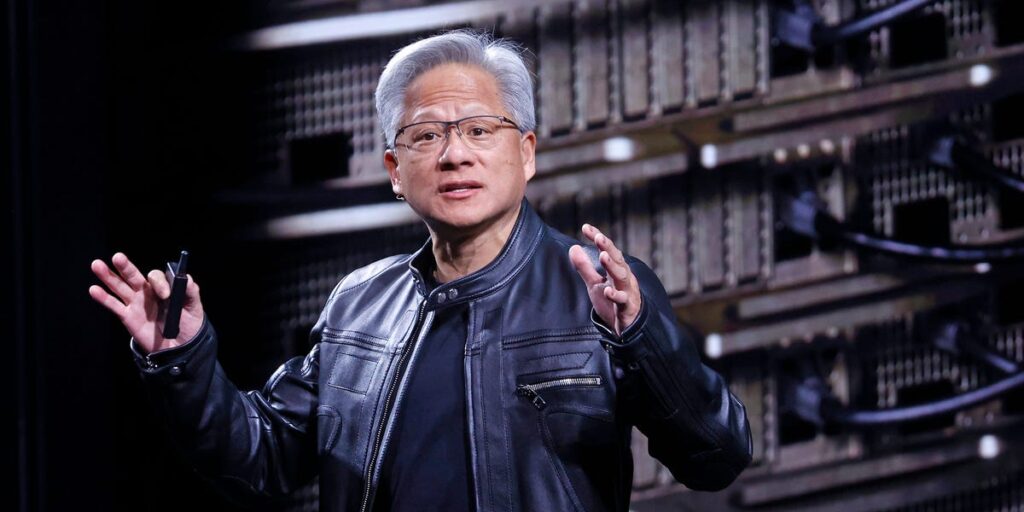Nvidia CEO Jensen Huang said fears about artificial intelligence wiping out jobs are overblown — but that doesn’t mean your work won’t change dramatically.
“I am certain 100% of everybody’s jobs will be changed,” he told CNN’s Fareed Zakaria on Sunday. “The work that we do in our jobs will be changed. The work will change. But it’s very likely — my job has already changed.”
As the head of the chipmaker at the heart of the AI revolution, Huang believes AI will reshape nearly every job, not through mass unemployment, but through massive task reduction.
“Some jobs will be lost. Many jobs would be created. And what I hope is that the productivity gains that we see in all the industries will lift society,” he added.
Huang pushed back on the idea that using AI reduces people’s ability to think.
“I’m not asking it to think for me. I’m asking it to teach me things that I don’t know, or help me solve problems that I otherwise wouldn’t be able to solve reasonably,” he said.
He said that prompting AI is itself a skill requiring cognitive effort and clarity.
“The idea of prompting an AI, the idea of asking questions — you’re spending most of your time today asking me questions,” he told Zakaria. “In order to ask good questions, it’s a highly cognitive skill.”
“As a CEO, I spend most of my time asking questions. And 90% of my instructions are actually conflated with questions.”
When interacting with AI, Huang said he doesn’t rely on a single response.
“I ask the same question of multiple AIs, and I ask them to compare each other’s notes, and then give me the best of all the answers,” he said. “And so I think that process of critiquing, criticizing the answers enhances cognitive skills.”
For Huang, AI isn’t a threat to human work but the “greatest technology equalizer” that will fundamentally redefine it.
“AI empowers people, it lifts people, it closes the technology gap, and as a result, more people will be able to do more things,” he said.
Not everyone is so optimistic
While Huang believes AI will reshape jobs rather than eliminate them, other experts and tech leaders have painted a more disruptive picture.
Adam Dorr, director of research at the RethinkX think tank, predicted that “most jobs will be gone by 2045.”
He cited his team’s research into more than 1,500 major technological transformations, which concluded that technology typically dominates within 15 to 20 years after gaining even a few percentage points of market share.
“We’re the horses, we’re the film cameras,” he told The Guardian last week, referring to historical patterns of disruption and the risk of AI making human workers obsolete.
Geoffrey Hinton, the so-called “Godfather of AI,” echoed similar concerns, telling the Diary of a CEO podcast last month: “For mundane intellectual labor, AI is just going to replace everybody.”
He said he’d be “terrified” to work in a call center or as a paralegal, and recommended becoming a plumber — a job he sees as safer from automation for now.
Anthropic CEO Dario Amodei predicted that AI could eliminate 50% of white-collar entry-level jobs within five years.
In May, he told Axios that AI companies and the government are “sugarcoating” the risks of mass job elimination in fields including technology, finance, law, and consulting, adding, “I don’t think this is on people’s radar.”
However, others shared Huang’s outlook. In a LinkedIn post last month, Meta’s chief AI scientist Yann LeCun said he “pretty much disagrees with everything Dario says” and argued that AI will augment workers, not replace them.
Read the full article here


